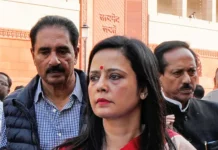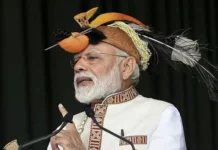 MELBOURNE: In a major relief to Indian- American surgeon Jayant Patel, accused of the manslaughter of three patients in Queensland, an Australian court today granted him bail, ruling that he had been the victim of a “substantial miscarriage of justice” and ordered a re-trial.
MELBOURNE: In a major relief to Indian- American surgeon Jayant Patel, accused of the manslaughter of three patients in Queensland, an Australian court today granted him bail, ruling that he had been the victim of a “substantial miscarriage of justice” and ordered a re-trial.
Dubbed by the Australian media as “Dr Death”, Patel was sentenced to seven years in prison in 2010 after being convicted of three counts of manslaughter and one count of causing grievous bodily harm to his patients in Queensland.
The Brisbane High Court today dismissed the convictions and ordered a retrial, saying a substantial miscarriage of justice had occurred on the 43rd day of Patel’s 58-day trial, when the “prosecutors radically changed their case in a way which rendered irrelevant much of the evidence.”
It also ordered that his convictions and seven-year jail sentence be set aside, the local media reported.
During the hearing before Justice Martin Daubney, the Director of Public Prosecutions did not oppose bail.
62-year-old Patel’s lawyers argued the bail conditions were “exactly the same” as the conditions he faced while on trial in 2010, and that the USD 20,000 surety lodged at that time remained in place.
Under his bail conditions, Patel will have to report to police three times a week, must not contact any witnesses, cannot leave Queensland without consent and cannot leave Australia. Patel’s passport remains in the possession of justice authorities.
Patel’s defense lawyer Arun Raniga said there was some paperwork to be completed, but he was hopeful that the doctor could be released from jail later today.
Patel, who is US-trained surgeon, had pleaded not guilty in 2010 to the manslaughter of three patients – James Phillips, 46, Gerry Kemps, 77, and Mervyn Morris, 75, who died following surgery performed by him. Patel had also pleaded not guilty to the grievous bodily harm of Ian Vowles, whose bowel he removed in October 2004.
During the hearing, ‘The Age’ newspaper said, the High Court bench found that the Crown case against Patel originally focused on his surgical skills and post-operative care, alleging he had been “grossly negligent in all aspects of his treatment of the patients”.
However, on the 43rd day of the trial, the High Court found, prosecutors changed the scope of their case, narrowing the focus to “whether the surgical procedure in each case should have been undertaken,” the report said.
This occurred after it became apparent that the surgeries “had in fact been performed competently enough”, the court ruled.
It ruled that evidence the prosecution had introduced about the surgeries and post-operative care before it changed its case was therefore no longer relevant and had been prejudicial to Patel.
At the time, trial judge Justice John Byrne told the jury: “It is critical to appreciate that this trial is not about botched surgery. Instead, it is about surgery performed competently enough. There may have been an imperfection or two in some of the procedures. If so, the mistakes did not, it seems, adversely affect patients.
“It is not how the (appellant) performed surgery that matters in these four cases.
“What matters is his judgment in deciding to commend the surgery to a patient and, having obtained patient’s consent, in taking the patient to theatre to perform it.”
However, the High Court ruled the “prejudicial effect on the jury was not overcome” and “a substantial miscarriage of justice occurred”. -PTI






